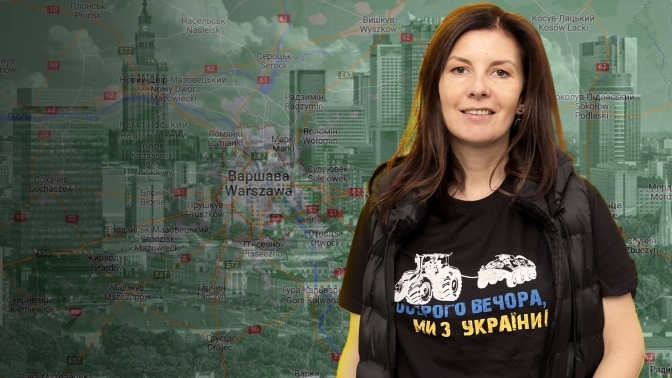
«We still live out of suitcases»
Before the start of the Russian invasion, in January, I gave birth to my second child. It happened that we stayed at the OHMATDYT children’s hospital for almost a month. We returned home in mid-February and I introduced the younger son to the older one. Of course, we read the news about the possibility of a full-scale war, but until the last moment, we couldn’t believe it would happen. In our situation, we needed constant access to doctors because we had to undergo weekly tests. My husband and colleagues at work suggested that I go to Lviv, saying it was dangerous to stay in Kyiv, and it would be a kind of short «vacation» for the children. So, we made the decision to go and let our younger son meet his grandparents because I am originally from Lviv. It was in Lviv that I found out about the start of the war. We moved to a village, but it was challenging to access medical care. Therefore, we had to go to Poland for a while. Why here? Because it was the closest option. Nobody wanted to go with me: my husband couldn’t, and my mother works in a hospital. For a few weeks, my mother-in-law accompanied me for the purpose of adaptation. We thought we would stay here for a month, and we didn’t bring much clothing with us. I only had a tracksuit that I wore for about six months and a pair of sneakers. I carried my younger son, Yarema, in a baby sling, and later we were given a stroller here because he was growing. It was a nice gesture.
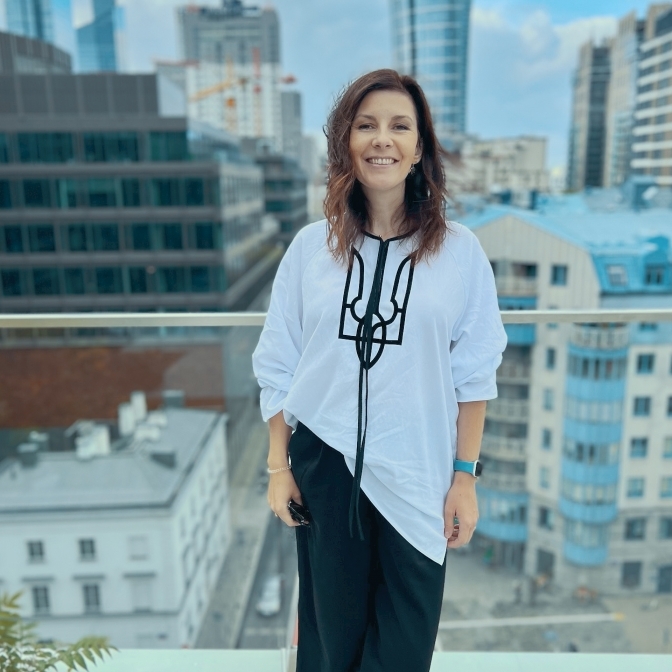
I was fortunate that I studied in Warsaw at one point in my life and have several classmates here who helped me with accommodation. When we arrived in Warsaw on March 2nd, finding an apartment was nearly impossible due to the rush. We have been living constantly, as they say, out of suitcases, and it remains the same until now. We will definitely return home; the question is only when.
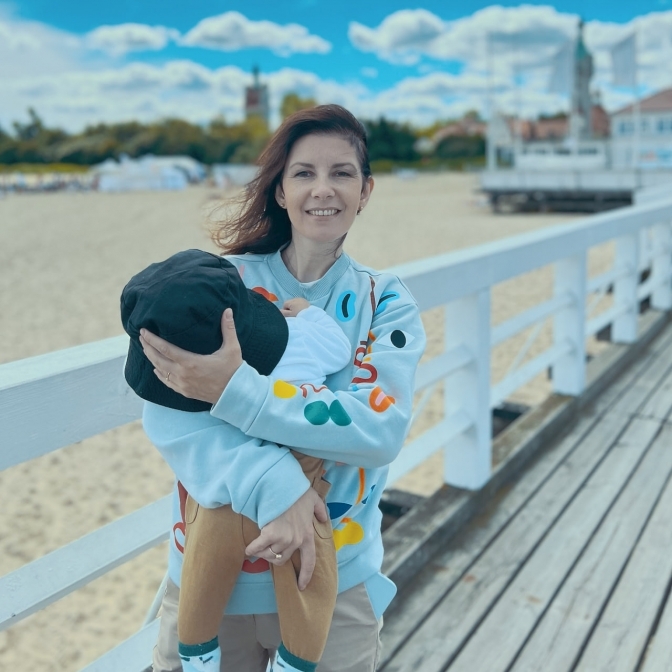
In Kyiv, we live on the 23rd floor, and there is no shelter, so it was difficult for us to run anywhere with two kids. We could look for a way out, but we have been saving our sons’ lives for so long. We are still doing it for their safety... My husband is now supplying equipment and ammunition to the Ukrainian army. Every day, my eldest son says he wants to go to Kyiv, asks when the war will end, and is sure that we need to destroy the Muscovites. So we have fled to a safe place, but we have not escaped from the war.
Having access to hospitals and medical laboratories remains an important factor for us. In Warsaw, there is a Children’s Health Center similar to our OHMATDYT hospital. The attitude towards Ukrainians is very positive, and all medical services are free for us. The only unusual thing is that there are queues. For example, to have an operation for our son here, we were told to wait for 22 months, so we decided to go back to Ukraine and have it done there.
In general, Ukrainians in Warsaw feel psychologically comfortable. Why is that? It’s because they encounter fellow Ukrainians everywhere in various service sectors – from kindergarten teachers and store clerks to children’s hairdressers and taxi drivers. This presence gives them a sense of being at home.
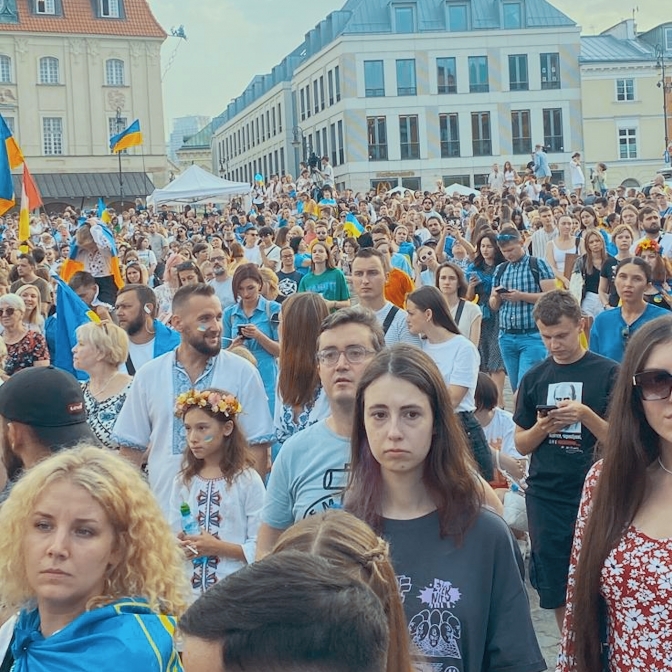
In Warsaw, there are several centers for Ukrainians, including the Ukrainian House, which is supported by the City Hall. They organize numerous activities for both children and adults. Currently, for example, they are organizing a summer day camp. We held an urban club for children from different cities in Ukraine, such as Kharkiv, Pokrovsk, Kyiv, Bucha, and others, at the Ukrainian House. I noticed how amazing these children are. On one hand, they miss their hometowns and feel nostalgic for their native homes. On the other hand, they possess critical thinking skills and observe what they can «take» back home and what experiences they can adopt. This is great because such experiences are essential for the rebuilding of Ukraine. The demands placed on Ukrainian cities will be higher because only in this way can we ensure that they become better.
There is another center, Euromaidan-Warsaw. The head of this foundation, Natalia Panchenko, organizes various actions in support of Ukraine, including blocking lorries that wanted to bypass the sanctions: all these actions are aimed at raising funds for the Ukrainian military. Perhaps the most impressive action was when, on the day of the Soviet victory on 9 May, activists blocked the Russian ambassador’s access to the mausoleum of Soviet soldiers, where he wanted to lay flowers. The activists placed many Ukrainian flags, which can be seen on the graves of Ukrainian soldiers, and poured red paint as a symbolic gesture. It was a powerful act. When the ambassador arrived, he felt humiliated, turned around, and left.
«We should also organize opportunity fairs»
Warsaw has excellent infrastructure, and it’s convenient to get around using bicycles or electric scooters. By the way, I used them too and even gave my child a ride on an electric scooter to kindergarten. However, I once overestimated my abilities. I was busy zooming along the way, and when I needed to turn on the microphone, I fell off the electric scooter and broke my arm. None of the passersby ignored the situation. Two people immediately stopped, provided first aid, and called an ambulance. When I had the cast applied and needed to see a doctor, I had to wait again. Now I understand why medical tourism in Ukraine is still relevant because it’s actually easier to see a doctor there.
If we talk about cities and infrastructure, everything is quite convenient here.
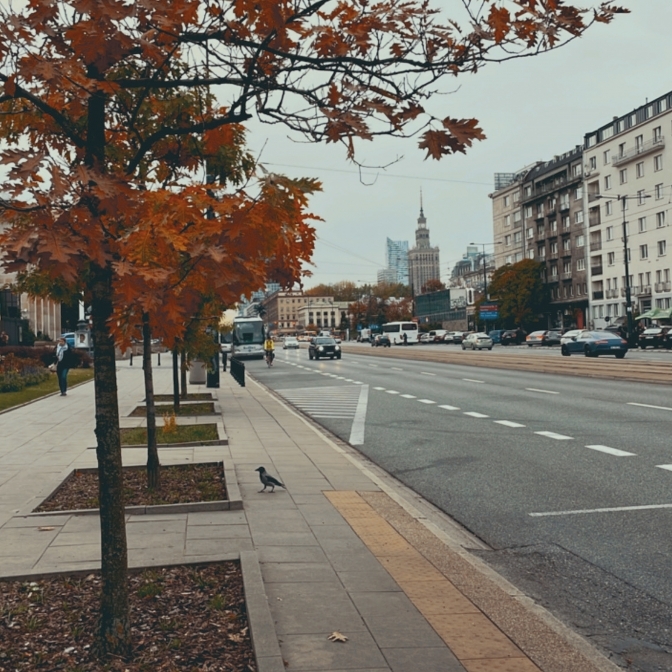
The current mayor of Warsaw, Rafał Trzaskowski, is a former presidential candidate (he ran in 2020 and lost to Andrzej Duda by 2% of the vote – Lviv Now) When he was campaigning, he said they would plant a million trees in Warsaw. So far, 500 000 have been planted, but they are not stopping there.
Warsaw cultivates a love of nature and a healthy lifestyle. Cyclists have a priority here: when you turn a corner in a car, you have to pay attention and let them pass. Warsaw also has very convenient public transport – 160 electric buses with the words «I am eco-friendly» on them. The capital residents are trying to take care of the air and minimize emissions, and it’s nice to see. It is interesting when people approach pedestrian crossings, the cars stop in advance. In Ukraine, cars almost always try to get through.
I also like the local playgrounds. They are divided into age categories – for younger and older children. They have a lot of wooden elements, and they are located mainly in parks.
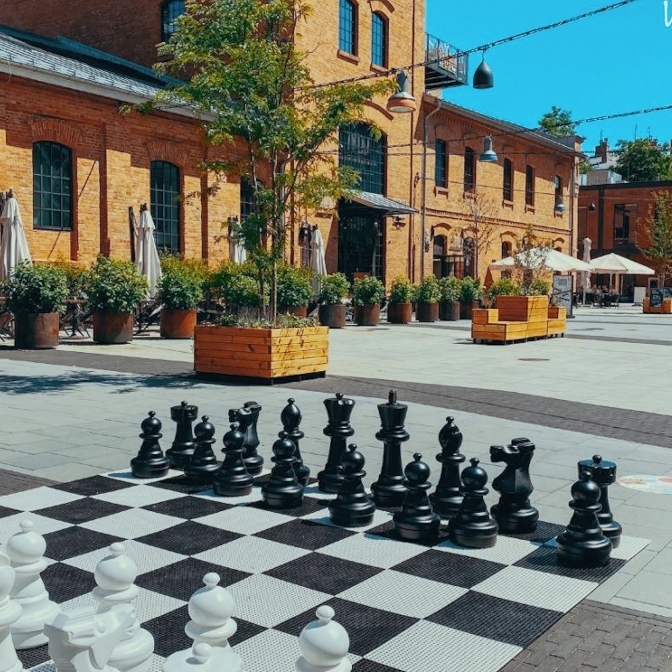
Moreover, Warsaw organizes very cool opportunity fairs. The local authorities hold such fairs in different neighborhoods, bringing in various organizations – dance schools, judo and chess clubs, and theater studios. And during the weekends, children come here with their parents, enjoy and relax. These fairs of opportunity and development are free for children. We should adopt this practice. Sometimes parents don’t know where to look for clubs, and it is a good opportunity to make a choice and meet new people.
How our cities will change
Ukrainian cities will change as we allow them to change. The Economist recently released a ranking of 173 cities. Not for the first time, Vienna topped the list, followed by Copenhagen, and Kyiv was in the bottom ten. We understand that this is partly due to the war because the war destroyed our infrastructure. But I shall be honest as long as we have minibusses running, we cannot count on a better rank. The air and water quality in these cities is also much better.
By the way, I was in Copenhagen in May. We could not find even a bottle of water in the hotel. And then I saw a piece of paper near the sink with the inscription: «Drink me from the tap because I am very clean.» It was hard to believe: how does it feel to drink water from the tap? So I hope that thanks to high-quality air-conditioned public transport and convenient infrastructure in developed cities, Ukrainians will have different demands, different criteria in elections, and better involvement of people in these processes. Therefore, we will either become very active, monitor mayors’ promises, use open budgeting, attend public hearings, or miss the chance for change. It all depends on us!
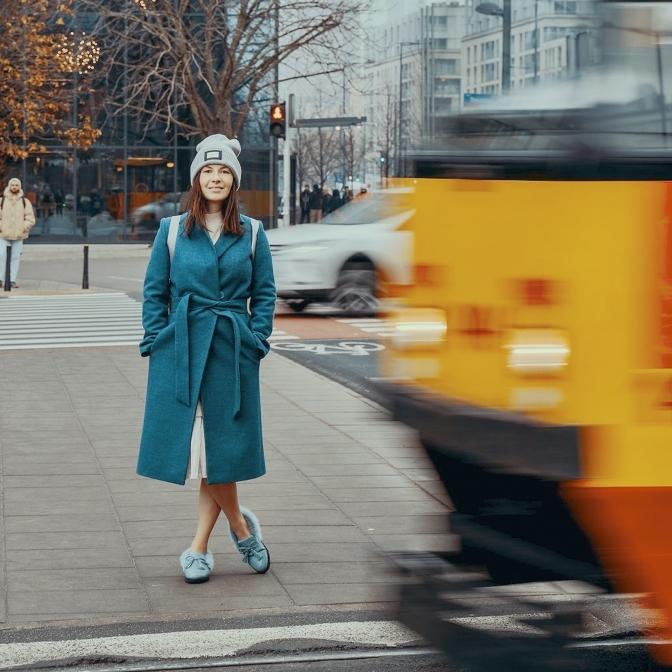
«Kiosk-type cities should become a thing of the past»
The government needs to create economic opportunities for Ukrainians to return home so that people can fulfill themselves, earn decent wages, rent housing, send their children to schools and kindergartens, and receive medical treatment. The EU said it welcomed Ukraine’s progress in reforms. Judicial reform is still slow, but it is very important for investment and foreign business confidence.
I have no idea what’s in store for us. If you talk to city mayors, no one knows how many children will go to school on 1 September, and no one knows how many will return. I know that there are good kindergartens in Ukraine. My eldest son goes to a bilingual kindergarten in Warsaw, where they speak Polish and English. They have a teacher from Africa, so you could say it is a bit international, and that’s what we lack in Ukraine. The education level in our country is not bad, but not everywhere. The state should offer teachers decent salaries and a system of professional development. When we talk about rebuilding schools, we all understand that there is the destruction of buildings. But in reality, the education system needs to be rebuilt as well.
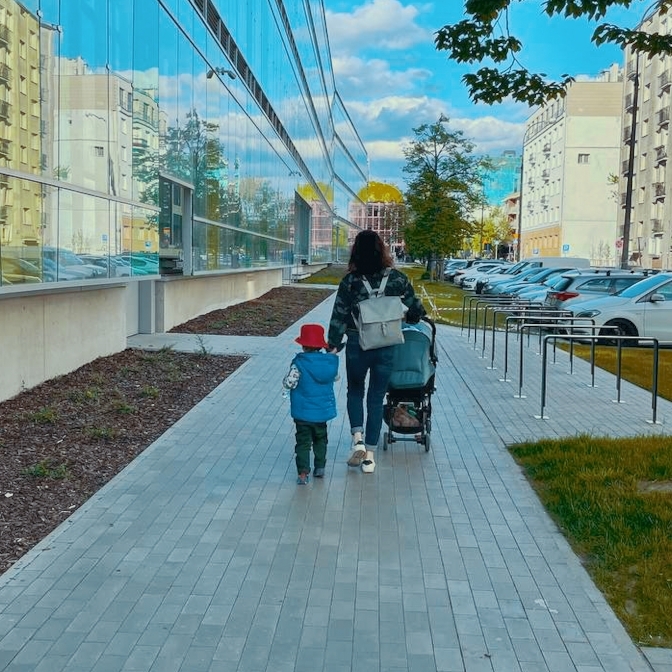
We have finally come to realize that we have only one life, that it is quite fragile because of the enemy neighbor, so kiosk-type cities, where there is no urbanism, where everything is building up constantly, where corruption schemes are in place, should become a thing of the past. It is important to think strategically to build cities that will not lag in international rankings. I’m talking about nature, parks, green energy, reducing harmful emissions, etc.
By the way, our Western NIS Enterprise Fund is announcing a project for UAH 10 million in grants to establish ten community building centers. The active volunteer movement has shown how we can unite against the enemy, and it is very important to maintain this cohesion and use it to rebuild our country. Our goal is to help create centers where people can meet, communicate, take advantage of educational and business programs, and take an active part in the life and development of their community.
We have to ask ourselves where we want to live in the future, what we want to give our children, whether we are ready to fight inefficient public services and corruption for another 20-30 years, or whether the interests of communities will finally become a priority in urban development.
By the way, at the end of July, an updated version of my book «City Is Me» will be released (an interactive book for children to learn what a city budget is, how local authorities work, where the garbage goes, and where water comes from, how to make decisions and make the city better – Lviv Now). The book will now have four new chapters: on cities and war, twin cities, nature, and inclusivity and accessibility. The topic of inclusiveness and accessibility is a cross-cutting one. The war wounded and disabled many Ukrainians. We need to talk about this and teach children to be empathetic, understanding, and helpful.
I also do not like the statement – «Heroes do not die.» Unfortunately, they do. And their memory can die if we allow it to. For me, for example, it is important to remember Roman Ratushnyi, who defended Ukraine at the frontline and Kyiv from dishonest people. That is why I would like to create a book about such role models of Ukrainians so that the younger generation would remember these heroes, continue their work, and profess their values.
«We need a deep internal dialogue»
Today it is very important that we do not «eat» each other out of exhaustion. Yes, I have heard from my friends more than once: «Why are you complaining, just go back to Ukraine» or «We live here, and we have children too.» There are, of course, those who advise me to ignore it. Everyone has their own experience. So there is tension, but it’s more about our fears, our pain. We left with a six-week-old child who required medical supervision.

We must understand that we have to be involved in bringing victory closer in one way or another. So that we don’t have interviews like the recent one on Khreshchatyk, where people responded to the question of what they were doing for victory by saying, «Living a normal life,» because in reality, there is no normal life, and it is uncertain when it will return.
We need to have a deep internal dialogue about the importance of everyone’s role so that everyone understands that victory also depends on them. After all, if doctors and utility workers left, we would not be able to save so many people and communities.
Indeed, unfortunately, we cannot physically destroy Russia, but we are capable of overcoming what the Soviet era imposed on us–all the inefficiency, corruption–on our path to reforms if we change ourselves.
This piece was created with the support of the Institute of Mass Information as part of the project «Supporting Independent Ukrainian Media during the War», funded by the Ministry of Foreign Affairs of the Kingdom of the Netherlands.
According to the Office of the United Nations High Commissioner for Refugees (UNHCR), as of early March 2023, approximately 8.1 million Ukrainians have left for European countries following the start of the full-scale Russian-Ukrainian war. Of these, around 4.9 million individuals have legalized their stay through the mechanism of «temporary protection» in those countries. Unfortunately, a significant portion of Ukrainians, including those from regions where there are currently no active hostilities, remain abroad. They may sometimes face public condemnation for their decision to stay abroad instead of returning to their homeland. The migrants themselves often express dissatisfaction with the weak communication between them and the Ukrainian government.
Translated by Yulian Lahun
Follow us on Facebook and Instagram. Lviv Now is an English-language website for Lviv, Ukraine’s «tech-friendly cultural hub.» It is produced by Tvoe Misto («Your City») media hub, which hosts regular problem-solving public forums to benefit the city and its people.












